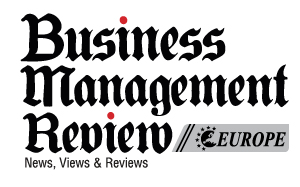Thank you for Subscribing to Business Management Review Weekly Brief
I agree We use cookies on this website to enhance your user experience. By clicking any link on this page you are giving your consent for us to set cookies. More info
Optimizing Business Potential: The Critical Role of Advisory and Tax Services
Business advisory and tax services help companies grow, stay compliant, and manage risks through informed strategic and financial planning.
By
Business Management Review | Tuesday, December 16, 2025
In today’s fast-paced and ever-changing business environment, companies must navigate a range of challenges to remain competitive and compliant. With market conditions fluctuating, global trade complexities growing, and regulatory landscapes evolving, businesses are increasingly turning to professional services for guidance. Business advisory and tax services have become critical components of this support structure, enabling organizations to manage risk, optimize operations, and enhance long-term profitability. These services do not simply provide solutions to immediate financial needs; they offer strategic insight that can guide the direction of a company’s growth and success.
Advisory Services: Guiding Strategic Business Decisions
To assist firms in making strategic decisions aligned with their long-term objectives, business advisory services are essential. Advisory services offer valuable insights that can significantly influence corporate strategy, whether a firm aims to grow, explore new markets, or enhance operational efficiency. Advisors encourage a proactive approach to business development by helping companies assess their internal capabilities, identify market opportunities, and mitigate risks. Advisors can offer guidance on a wide range of topics, from organizational restructuring to mergers and acquisitions, leveraging their extensive industry knowledge to ensure businesses are well-prepared to capitalize on new opportunities.
Stay ahead of the industry with exclusive feature stories on the top companies, expert insights and the latest news delivered straight to your inbox. Subscribe today.
For example, consultants might offer market research and risk analyses to companies considering growth to determine if entering a new area or industry is a good idea. These understandings are essential for creating successful market entry plans and making sure the company's resources are used effectively. Business consultants are also crucial in helping organizations navigate unpredictable periods, such as recessions or significant sector upheavals. They are essential allies during both prosperous and challenging times, as they help identify potential dangers and develop strategies to overcome them.
An essential component of business advice services is the capacity to evaluate a company's financial situation. Advisors review financial accounts and key performance indicators (KPIs) to help company executives make informed, data-driven decisions. These services enable firms to make informed decisions about capital investments, resource allocation, and long-term sustainability by providing a thorough examination of revenue streams, cost structures, and profitability. By adopting a comprehensive strategy, corporate strategies are ensured to be both flexible and grounded in reliable financial data.
Tax Services: Ensuring Compliance and Optimization
Tax services provide crucial assistance in ensuring compliance and minimizing tax obligations, while corporate advisory services focus on strategic growth and development. Businesses, especially those in highly regulated industries or those with a global presence, may find it challenging to navigate the complicated web of local, national, and international tax laws. Tax experts help companies understand and comply with these rules, preventing costly fines and ensuring the corporation maintains a positive reputation with regulatory bodies.
Simple compliance is only one aspect of adequate tax preparation. It also entails seeing chances to improve a business's tax situation. Businesses can enhance their cash flow and reduce their overall tax burden by adopting a proactive tax strategy. Tax experts assist entrepreneurs in determining the most tax-efficient arrangements for their activities, whether those entails creating subsidiaries, utilizing tax credits, or leveraging the various tax breaks offered by different countries. Significant savings from his meticulous planning can be reinvested in the company to spur expansion and creativity.
For example, businesses with international operations must navigate various tax regimes and address issues such as transfer pricing, cross-border taxation, and repatriation of earnings. Tax experts help ensure that these transactions are structured to comply with local laws while minimizing overall tax exposure. They also assist in filing accurate and timely tax returns, ensuring that businesses avoid audit risks and remain compliant with changing regulations.
Tax experts provide valuable guidance on succession planning, helping entrepreneurs navigate the complex process of transferring assets or ownership to the next generation. They can create tax-efficient succession plans that reduce estate taxes and facilitate smoother transitions, thereby ensuring the company's long-term viability. For family-owned enterprises or those with multiple stakeholders, where careful preparation is crucial to preserve wealth and prevent disputes, this portion of tax services is particularly significant.
The Role of Both Services in Risk Management
A key benefit of combining tax and business advisory services is the ability to manage risk more effectively. Risk management is more crucial than ever in a company environment marked by technological upheaval, fluctuating consumer expectations, and economic instability. Tax and advisory services help companies identify, assess, and mitigate risks before they become significant problems.
By offering risk assessments, backup plans, and crisis management techniques, business consultants help organizations understand and mitigate operational, financial, and strategic risks. Having the correct direction can be crucial for successfully overcoming obstacles, whether they are related to supply chain interruptions, cybersecurity risks, or shifting market dynamics. Professionals in the tax field ensure that companies are prepared for any tax audits, changes in regulations, or compliance issues that can pose financial risks. Additionally, they help companies stay ahead of changing tax regulations, ensuring compliance and reducing tax-related risks.
More in News






